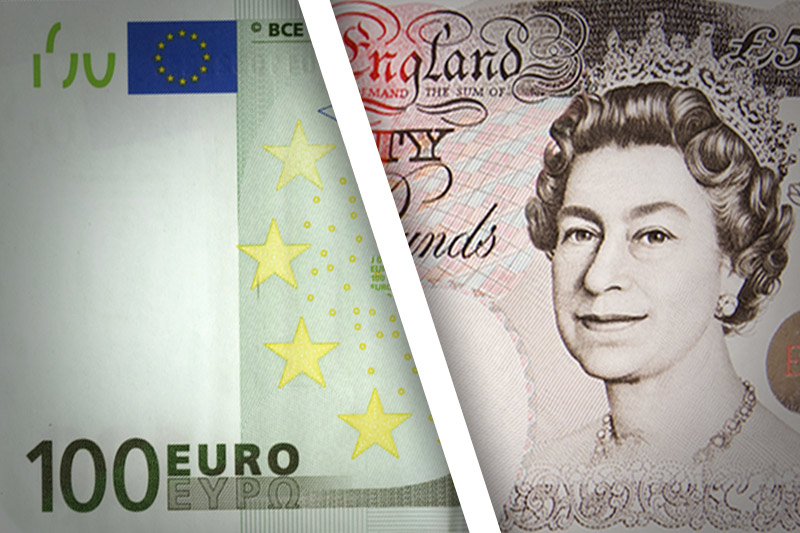Investing.com - The euro came off a four-month high against the pound on Wednesday, following upbeat U.K. employment data and Bank of England meeting minutes, but the single currency remained supported after a decision by ratings agency Moody’s not to downgrade Spain.
EUR/GBP pulled back from 0.8136, the pair’s highest since June 15, to hit 0.8116 during European late morning trade, still up 0.19% for the day.
The pair was likely to find support at 0.8101, the session low and resistance at 0.8152, the session high.
The Office for National Statistics said the number of people claiming jobless benefit in the U.K. fell by 4,000 last month, compared to expectations for a decline of 1,000.
The unemployment rate unexpectedly fell to 7.9% from 8.1% in August. Analysts’ had expected the jobless rate to remain unchanged.
The ONS also said average earnings rose by 1.7% in September, above expectations for a 1.6% gain.
Separately, the minutes of the BoE’s October meeting showed that policymakers voted in favor of leaving the size of the bank’s asset purchase program unchanged at GBP375 billion and interest rates at a record low 0.5% this month.
However, the minutes indicated that policymakers disagreed over whether more easing will be required when the current round of asset purchases ends later this month.
The euro remained supported after Moody’s confirmed Spain’s credit rating at Baaa3 with a negative outlook earlier, just one notch above junk status, and expressed confidence that reforms enacted by the Spanish government and the European Central Bank’s bond buying program would ensure that Madrid had continued access to credit markets.
The yield on Spanish 10-year bonds fell to 5.53% following the announcement, the lowest level since April.
Sentiment on the euro has been underpinned in recent weeks by hopes that Spain will soon request a bailout from its euro zone partners, but uncertainty over the timing of a request and what form a bailout would take has persisted.
Sterling rose to an eight-day high against the U.S. dollar, with GBP/USD up 0.30% to 1.6158.
Later in the day, the U.S. was to publish government data on building permits and housing starts.
EUR/GBP pulled back from 0.8136, the pair’s highest since June 15, to hit 0.8116 during European late morning trade, still up 0.19% for the day.
The pair was likely to find support at 0.8101, the session low and resistance at 0.8152, the session high.
The Office for National Statistics said the number of people claiming jobless benefit in the U.K. fell by 4,000 last month, compared to expectations for a decline of 1,000.
The unemployment rate unexpectedly fell to 7.9% from 8.1% in August. Analysts’ had expected the jobless rate to remain unchanged.
The ONS also said average earnings rose by 1.7% in September, above expectations for a 1.6% gain.
Separately, the minutes of the BoE’s October meeting showed that policymakers voted in favor of leaving the size of the bank’s asset purchase program unchanged at GBP375 billion and interest rates at a record low 0.5% this month.
However, the minutes indicated that policymakers disagreed over whether more easing will be required when the current round of asset purchases ends later this month.
The euro remained supported after Moody’s confirmed Spain’s credit rating at Baaa3 with a negative outlook earlier, just one notch above junk status, and expressed confidence that reforms enacted by the Spanish government and the European Central Bank’s bond buying program would ensure that Madrid had continued access to credit markets.
The yield on Spanish 10-year bonds fell to 5.53% following the announcement, the lowest level since April.
Sentiment on the euro has been underpinned in recent weeks by hopes that Spain will soon request a bailout from its euro zone partners, but uncertainty over the timing of a request and what form a bailout would take has persisted.
Sterling rose to an eight-day high against the U.S. dollar, with GBP/USD up 0.30% to 1.6158.
Later in the day, the U.S. was to publish government data on building permits and housing starts.
